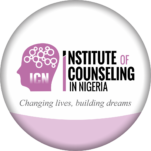Symptoms of alcohol use disorder are based on the behaviors and physical outcomes that occur as a result of alcohol addiction.
People with alcohol use disorder may engage in the following behaviors: drinking alone, drinking more to feel the effects of alcohol (having a high tolerance), becoming violent or angry when asked about their drinking habits, not eating or eating poorly, neglecting personal hygiene, missing work or school because of drinking, being unable to control alcohol intake, making excuses to drink, continuing to drink even when legal, social, or economic problems develop, giving up important social, occupational, or recreational activities because of alcohol use
Furthermore, people with alcohol use disorder may also experience the following physical symptoms: alcohol cravings, withdrawal symptoms when not drinking, including shaking, nausea, and vomiting, tremors (involuntary shaking) the morning after drinking, lapses in memory (blacking out) after a night of drinking, illnesses, such as alcoholic ketoacidosis (includes dehydration-type symptoms) or cirrhosis
Sometimes it can be hard to draw the line between safe alcohol use and the misuse of alcohol. A person may misuse alcohol if you answer “yes” to some of the following questions:
Do you need to drink more in order to feel the effects of alcohol?
Do you feel guilty about drinking?
Do you become irritable or violent when you’re drinking?
Do you have problems at school or work because of drinking?
Do you think it might be better if you cut back on your drinking?
The National Council on Alcoholism and Drug Dependence and AlcoholScreening.org offers more comprehensive self-tests. These tests can help a person assess whether he/she misuse alcohol. As a counselor, you can diagnose alcohol use disorder by conducting a physical exam and ask questions about individuals’ drinking habits. Questions like, if you:
drive when you’re drunk
have missed work or have lost a job as a result of your drinking
need more alcohol to feel “drunk” when you drink
have experienced blackouts as a result of your drinking
have tried to cut back on your drinking but couldn’t
Some of the Signs and Symptoms of Alcohol Abuse in a child or adolescent
As a counselor, you may find a child or teen smells of alcohol on their breath or skin. Eyes may be glazed or bloodshot, the skin may get flushed and the child/teen may become particularly argumentative or physically abusive. There may also be a significant memory loss. In addition, some common behavioral symptoms include lying, making excuses, breaking curfew, staying in their room, mood swings, stealing, and changes in friends.
In some extreme cases, alcohol poisoning can occur. Alcohol poisoning is the potentially fatal result of drinking excessive amounts of alcohol in a short period of time. It is caused by alcohol slowing down the body’s functions (for example, breathing, heart rate, and gag reflex), thereby potentially leading to choking, coma, stopped breathing, stopped heart, and death. Treatment involves getting the person to the hospital immediately so he or she can be closely watched by medical professionals, given oxygen and fluids, and so that other measures can be taken in order to prevent choking, as well as stopped breathing or heartbeat.
What Can Parents do to Prevent Alcohol Abuse in their Children and Teens?
Children need to hear from their parents about the negative effects of alcohol. Children need to be told clearly by their parents that alcohol abuse is not acceptable. Parental supervision in this area is crucial. Extracurricular activities and other appropriate social involvement are important ways of preventing alcohol abuse in teens, especially during those times that parents are not around to supervise them directly. Parents can also help educate teens about appropriate coping and stress-management strategies. For example, religion has been shown to be an effective way to cope with stress; studies have indicated that teens who turn to religion to cope with stress tend to use drugs significantly less often and have fewer problems as a result of drinking than their peers who do not use religion to cope.
